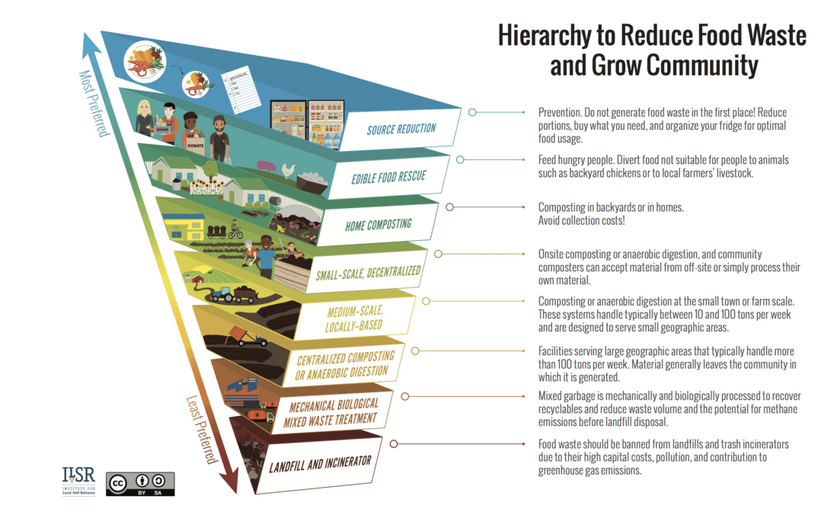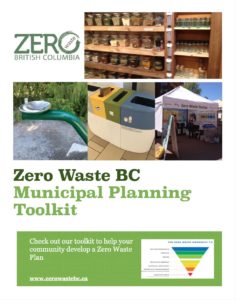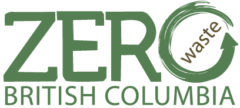
Food and Organics make up almost ⅓ of waste but this can vary depending on the success of programs. When organic material is sealed into a landfill without oxygen, it forms methane which is a powerful greenhouse gas (over 80 times carbon dioxide in the first twenty years). This can be prevented by programs to reduce food waste and compost organics. Furthermore, a lot of the food wasted is edible and did not have to be composted, incinerated, or landfilled. The best thing to do is to avoid wasting edible food in the first place through prevention and food recovery so it can be eaten by humans or animals.
The Province of BC had a goal to have 75% of the population covered by bans on organics to landfill. This was met but much more can be done as organics still represent a large amount of the waste.
Tools
 ZWBC’s Municipal Toolkit
ZWBC’s Municipal Toolkit
Love Food Hate Waste -campaign and tools to ensure food is eaten and not wasted.
Save the Food – Tools for household food waste prevention
Food Matters Action Kit – Activities to engage youth
Backyard Composting -This series of You Tube videos made by the North Shore Recycling Program can be helpful for back yard composting or organics collection in your home. It also includes tips for composting in bear country and there is also this pamphlet.
Province of BC –tools for Food and organic waste –bylaws, case studies, incentives and a food waste prevention toolkit
Province of BC –Food Donor Encouragement Act -yes you can donate food.
Province of BC –Policy on the Use of Reusable Containers -yes you can bring your own containers (some conditions apply).
Food Donation –Local food banks, also Food Mesh
Find food deals for near to expiry food –Flash Food
Food and Organics Working Group of the Public Technical Advisory Committee for Metro Vancouver’s waste planning – suggestions for actions
Organizations
National Zero Waste Council –food focus
Food Waste Prevention Week –tools
Natural Resources Defence Council – food waste actions
ReFED – website
Institute for Local Self-Reliance –Community Composting
Compost Education Centre –
Ellen Macarthur Foundation – Circular Economy for Food
Useful Reports
UN Environmental Program –Changing Behaviour to help more people waste less food.
Commission for Environment Cooperation –Characterization and Management of Food Loss and Waste in North America
Second Harvest –The Avoidable Crisis of Food Waste: Update
Canadian Standards Association. Municipal Food Loss and Waste in the Industrial, Commercial, and Institutional Sector –report
